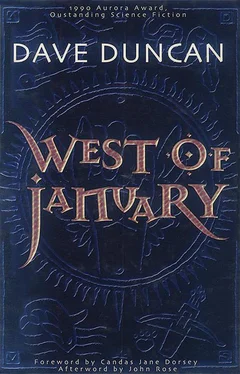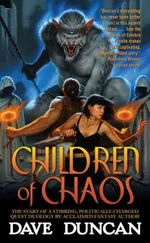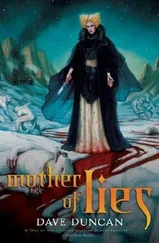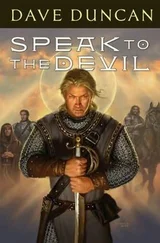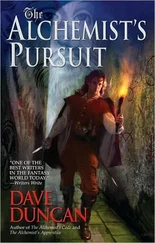“Now, what can I do for you gentlemen?” I asked cheerfully.
“You have used violence against a tribe of miners,” Indigo said bluntly.
“I massacred them,” I admitted. “It was bloody.”
“How many men did you lose?” Obviously subtlety was not Indigo’s greatest talent, and I wondered if Quetti had chosen him for that reason.
“Only fifty-two,” I said and enjoyed the reaction. To lose fifty-two men would cripple Heaven completely.
“Only?”
“I have thousands—but I grudge every one, I assure you. I was angry even to lose any of the slaves we were trying to rescue.”
“Violence is a breach of the Great Compact!”
“Not always,” I said mildly. “Section Six extends the right of self-defense to include vengeance when there are no angels within call. I once suffered grievously from those ants.”
The three angels exchanged glances. Perhaps they had known which tribe I had struck and had anticipated that defense. My history was on file in Heaven, and they should have known not to expect an ignorant savage headman.
“There are other restrictions,” Indigo said frigidly. “And the reason that there were no angels within call was that you were keeping them away. But even if Heaven could overlook that attack as having been provoked, there have been three other mine attacks since.”
“Five, now. It has taken you long enough to get here.” I nibbled a date with my few remaining teeth. “But the other mines submitted to me voluntarily and released their slaves. No blood at all was shed. No violence.”
“You threatened them with hundreds of armed men!”
“Thousands.”
“Are you saying that you were bluffing?”
I shrugged and dropped the pit into a convenient silver bowl. “It’s a hypothetical question.”
“One of those mines was outside the normal range of your group.”
I nodded. “Two of them, now. And there are many others still within my grasp. I am planning to strike at all of them.”
The angels recoiled like startled cats. Heaven had never been openly defied like this before. “You are telling us that we can’t stop you?” demanded one of the others, a thick-chested seaman, Two-blue-white. Indigo glared briefly at him.
“More or less,” I said. “If Heaven kept the ants under control, then the problem would not arise. Slavery I will not tolerate! Do you defend it?”
“Of course not!” That was Two-blue again.
I let the conversation lapse for a moment. I was unused to such excitement, but I must push on quickly while the angels’ weariness gave me a small advantage—so said the trader in me. I had made Haniana promise to stay away, but she would promise anything. If she thought I was overtaxing my strength, she would come scuttling in like a mother platypod defending her larvae. Where would my grandeur be then?
The canopy thumped gently, and the blacksmiths clinked. Most nerve-scraping of all, though, was the monotonous thud of arrows drifting up from the butts. It apparently vexed Indigo.
“Why are doing this?!” he shouted. “Those weapons have steel blades! This drink is cool, so you have must have introduced pottery, and a smithy is—”
“Other peoples enjoy such things,” I protested mildly.
“But you broke your angel oath—”
“I swore no oath!” My tone was sharp enough that some of the guards twitched ominously. “I obtained all these things from the traders.”
The angel scowled and then muttered. “My apologies.”
“Accepted. And talking of trade, would you care to make me an offer on fifty-nine guns?”
“Guns? Where did you get guns?”
I waved a blue-veined hand vaguely. “We find them when looking for slaves…in mines and trader trains, and so forth.”
The angels were aghast. “Fifty-nine?” Indigo muttered. Heaven was perpetually short of guns.
“That’s whole ones. Three baskets of parts, too.”
“So your hordes will ride beyond your group borders, will they?” Even in the cooling breeze of the palace, Indigo’s forehead shone with sweat. Fatigue and anger and fear all fought for possession of his face. “You will destroy the Great Compact and build an empire? And it will all collapse when you die.”
“Maybe not,” I said. “There will be no equal to take my place, of course, but my teachings will live on. You did hear my people singing, didn’t you?”
Three heads nodded, even as three mouths sneered.
“You are a poet…ah, Knobil.”
“I always had a knack; it came in handy. Psalms were the only way I could find to spread my laws. So I will live on in their hearts. Herdfolk have always sung. Now they sing my laws, is all. I cannot be replaced, but there will always be a king of the grasslands, I think, as the psalms decree.” I could no longer hide my amusement at their expressions. “I came from Heaven, of course. When I…return…then a mortal will rule in my name.”
“A thousand mortals will rule!” Indigo said.
“No.” I stared out at the distant skyline. Of course I will never know, but I have thought of this often, and I have convinced myself—most of the time—that it will work as I have planned. “No, I think not. With everyone living along the herdline, one narrow strip—just one man, the strongest. You cannot steal woollies; you cannot drive them off. They are so slow! One long herd, one king. That will be the way of the grasslands from now on.”
“You are insane!”
Indigo was being very brave and also very stupid to tell me so in my own throne room—a typical sandman. He flinched as I frowned at him.
“Didn’t we meet once?”
He nodded, looking surly. “I became a cherub just before you left.”
“I remember! Twist, they called you! I gave you archery lessons!” For a moment we smiled at each other in mutual nostalgia. Then I pulled myself back to the important business of frightening these emissaries. Frightened men do not bargain well. “Of course I know that angels are the only folk on Vernier who recognize no gods, and I can see that it must hurt to have to treat with one! But I never wanted to be a god, Twist. It just happened.”
Suddenly the third man spoke up. He was Yellow-green-gray, the youngest, and therefore likely the smartest. He had the shaggy look of a wolfman, intent and narrow-faced.
“But why?” he said in a soft voice, staring at me with steady golden eyes. “Why would you, you who had accepted Heaven’s care, you who could have been an angel—Michael swears you would be wearing the white instead of him, had you stayed—why did you build this monstrous armed force?”
“It began because I wanted vengeance,” I said and concentrated on the bowl of fruit near my hand, wishing to hide the sadness that his youthful outrage roused in me, “but then it just took off on its own… I saw the great dying, you know. I saw the angels try. I saw them fail. They failed because the herdfolk would not cooperate. I wanted to teach my people cooperation.”
“There’s nothing wrong with cooperation—”
“And this was the only way I could find to do it.” I looked over at Yellow, and his face was slightly blurred to me. “Cooperation was all I wanted,” I said sadly. “I knew that if the herdfolk cooperated, then they could cut off the ants’ supply of slaves—gain this…” I waved at the walls of my palace and the tent city beyond.
A note of hope crept into the youngster’s voice: “Then you will now disband your army?”
“No…no, I can’t. Fighting seems to be the only thing that I can make them cooperate for—does not the Great Compact warn us that violence is a disease that breeds and spreads? I knew the danger, angel, but I saw greater evils than that. First we fought the herdmasters and united the people. Then we chased traders—and angels, for practice. Now ants—at last! But if I disband my troops they will surely start fighting each other. Then it will all collapse, and everything, all my life’s—” I stopped and took a deep breath. I was tiring faster than they were. I ought to wait until another time. They were weary, but I was twice their age. Three times as old as Yellow.
Читать дальше
